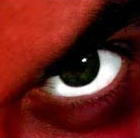The War Time Death Watch
By James Donahue
January 2005
It is happening all over
again. As American soldiers come home from the Iraq War in body bags, the local newspapers and television stations are calling
out the names of the victims from their area. CBS News is showing us pictures and giving us brief profiles of the dead.
A recent story by Catherine
Watson for the Minneapolis Star Tribune recalls the old days when we, as cub reporters, became the ones to call on the families
and widows of the bodies returning from the Vietnam War.
There were a lot of them.
The bodies came back slowly at first. But then as the war dragged on, and intensified, it got much worse. After a while, I
doubt if a week went by that I wasn’t asked to contact at least one local family to get information and a photograph
about a dead soldier.
I am retired now. The
gruesome task is someone else’s to do. But I remember vividly how difficult it was to go to those homes and make those
contacts.
Watson worked for the
old Minneapolis Tribune then. I worked for the now defunct Benton Harbor News-Palladium. Our roles were the same. Our editors
ran photographs and front page stories of the area soldiers added to the dead count.
That list was issued
daily by the Department of Defense and moved over the teletype by the Associated Press. We had a wire editor that gathered
the names early every morning and checked it for local victims. Our paper and its sister publication, the St. Joseph Herald
Press, covered a two-county area in Southwest Michigan, so the chances were always good that by the time I reported to my
desk at seven I would have another name waiting for me.
The list gave just the
basics: name, rank and hometown. The first task was to find the family. Unusual names were unique enough that we got them
on the first call. Names like Smith, however, sometimes filled pages in the telephone book. It took some research to hit the
right one.
Once I had it, I recall
that queasy feeling in the pit of my stomach as I picked up the phone to dial the family. What do you say to someone who just
got news like that? Chances were that a uniformed officer, or telegram, arrived at that door only hours before my call.
Watson is correct when
she wrote: “We quickly developed a standard introduction; apologize for disturbing them at this time, say we are sorry
for their loss, explain that the paper wanted to honor their soldier, and ask if they could help us with the information.”
That was exactly what
we said. They always said yes. And they usually always agreed to provide a picture.
Getting that picture
was the hardest part. It meant asking for it, getting directions to the house and then driving to the place, knocking on the
door, and meeting the widow, mother, father, brother or whoever was there face-to-face.
It was strange. I always
marveled that these people would let a stranger that claimed to be a newspaper reporter walk off with a cherished photograph
. . . sometimes the only nice photo they had of their dead husband or son. Although we carried identification, we were rarely
asked to show it. People just trusted us. I always made sure that photograph was returned. Sometimes I took it personally
back to the door.
The families were usually
always calm when we contacted them. It was strange. It was rare when I found a widow or mother weeping, or too broken to talk
to me. I think they were in a state of shock. It was as if they were in a surreal world, and they went through their daily
routines almost as if nothing was changed.
The shock and grief was
going to come later, when the body bags arrived, and the funerals were arranged. The soldiers all got military funerals, which
meant the local veterans got involved. That was when the realization of what happened finally hit these people.
I was glad my editor
never sent me to cover the funerals.
I was especially glad
when that terrible war came to an end. Even though I left the News-Palladium and went on to cover stories for two other Michigan
newspapers before the Vietnam conflict was shut down, the daily death count never stopped for me until the shooting was over.
After that the prisoners
of war began coming home. And we had a few of those to meet and write about. But that is another horror story.
There is nothing patriotic
or glamorous about war. That we attacked Iraq without cause, and started this new conflict that now
rages without a sign of coming to an end, sickens me. It is beginning to wear on the fabric of America,
just as Vietnam did.

